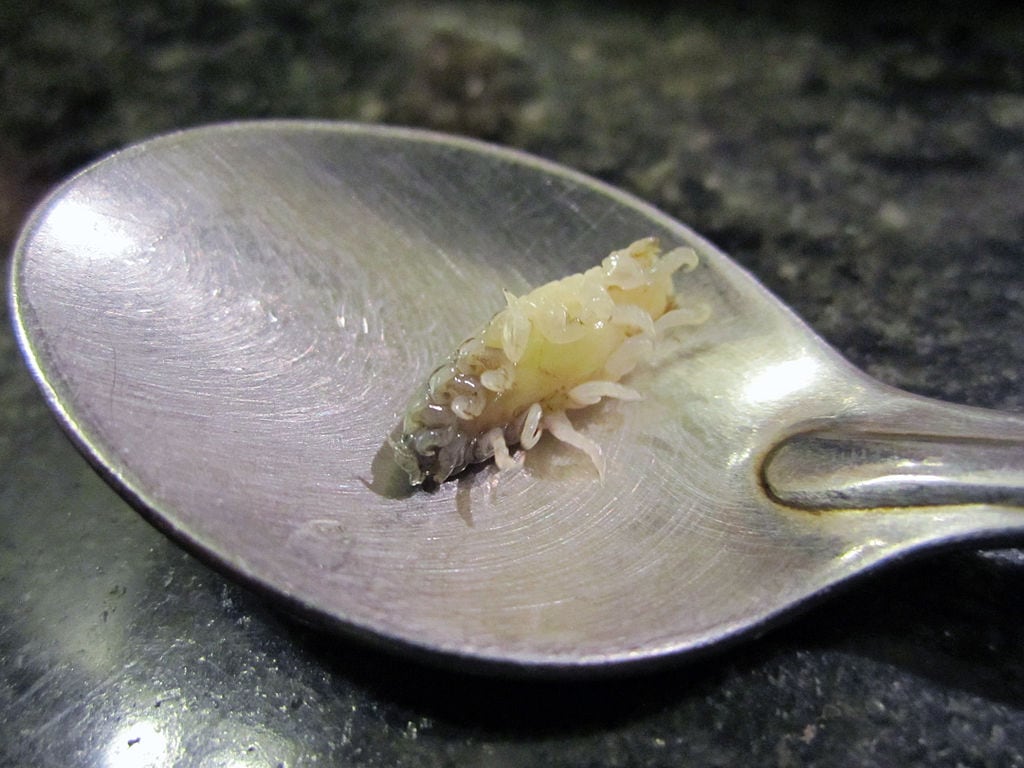Retired headmaster Paul Poli was put off his lunch by the sight of the yellow, louse-like creature embedded in the fish bought from Morrisons’ store in Llannon, South Wales. On returning the fish to the shop, the animal was identified as Cymothoa exigua – also known as the tongue-eating louse.
The parasite – which is about 3cm long and 8mm wide – invades fish through the gills before attaching itself to the prey’s tongue.

The pest then eats its host’s tongue and, in effect, becomes the fish’s ‘new tongue’. While harmless to humans, the louse can bite.
The 62-year old said the experience had put him off eating fish for life. “It was disgusting,” Poli told the South Wales Evening Post. “I’d bought it at lunchtime and cooked it in a bag for dinner.”
‘It was disgusting’
A Morrisons’ spokesman said certain fishes often pick up parasites naturally from their eco system. “Although we make every effort to screen these out during the skinning or packaging processes, they may be present on very rare occasions,” he told FoodManufacture.co.uk.
“Our skilled fishmongers will also identify them as they fillet a fish – Mr Poli’s fish was sold unfilleted at his request.”
Morrisons had apologised to Poli and offered him a £20 voucher as “a gesture of good will”.
The louse is widely distributed in the eastern Pacific from the Gulf of California south to north of the Gulf of Guayaquil, Ecuador.
Meanwhile, Poli is not the only supermarket shopper to have suffered a close encounter with exotic wildlife.
World’s deadliest spiders
Last month a Waitrose shopper found one of the world’s deadliest spiders in a bunch of bananas, freshly delivered by the posh supermarket chain.
The venomous arachnid – Brazilian Wandering Spider – was discovered when the shopper unpacked the delivery from Waitrose.com delivery. Also identified with the potentially fatal eight-legged visitor was a sac containing hundreds of spider eggs.
A Waitrose spokesman said the safety of customers was the store’s absolute priority. “We did everything we could to look after our customer during what was a distressing incident and we’ve apologised personally,” he said.
“Although this is highly unusual, we’re taking it very seriously and will be working with our supplier to minimise the risk of this happening in the future.”
